Best mesh routers for gaming
Need to cover your entire home in Wi-Fi? Here are the best mesh router kits for gaming.
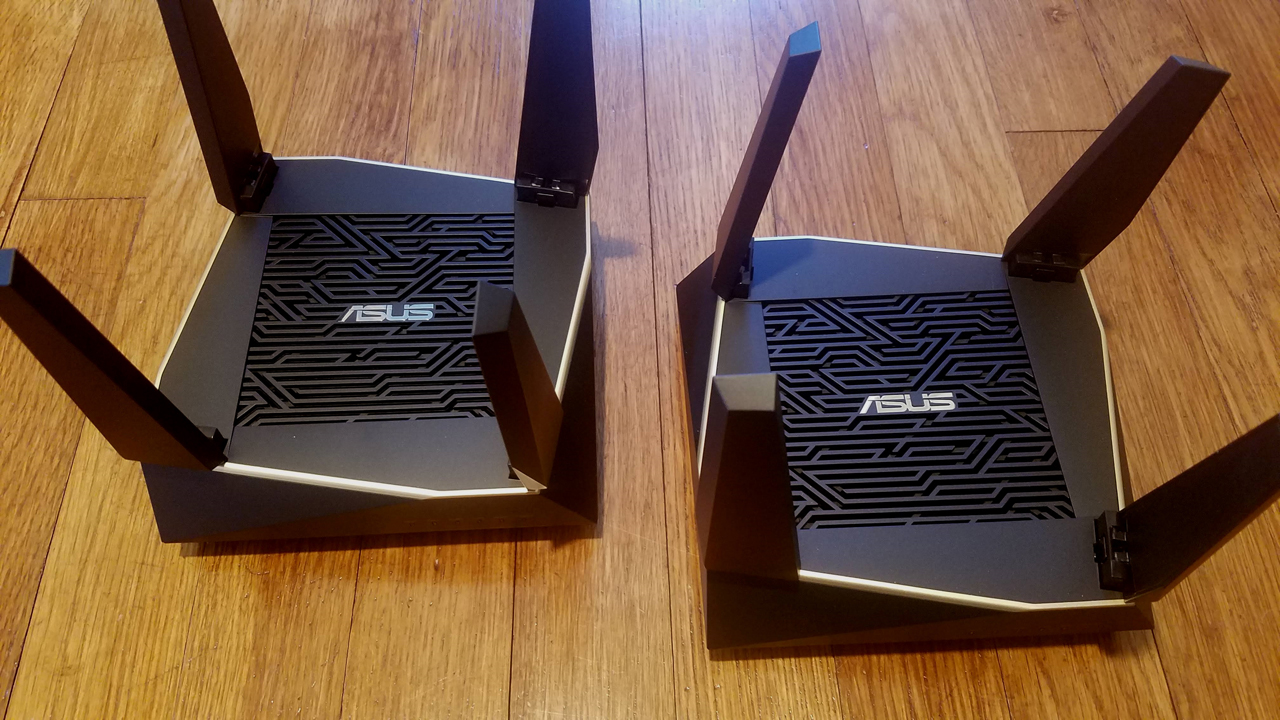
Once the newest kids on the networking block, mesh routers have matured to their own category in the residential networking market. Rather than just use a single router to provide Wi-Fi coverage for the home which can lead to Wi-Fi deadspots, in a wireless mesh setup, a series of devices, typically two to three, will blanket the home from corner to corner with its wireless signal, covering every nook, cranny and closet—or at least the theory goes. They're a decent alternative to our best gaming routers, if you need the spotless coverage.
There has certainly been networking gear available to deal with Wi-Fi signal dropouts, taking the form of additional access points and wireless extenders. While such devices promised to fix the wireless dead spots such as a basement, or the deck outside, the issue was that the additional gear was sold à la carte, required an intermediate level or higher of DIY networking knowledge and planning. In addition, such a setup quickly becomes complex to administer, with the dreaded issue of wireless handoffs between multiple devices, each with the further potential of multiple SSID’s. Sound like this can become a wireless mess with nothing consistently connecting as you go from one floor of the house to the next? Well then, this is the situation that a mesh network can solve, with all the hardware prepackaged in a nice box, with simple directions and a neat smartphone app to manage everything.
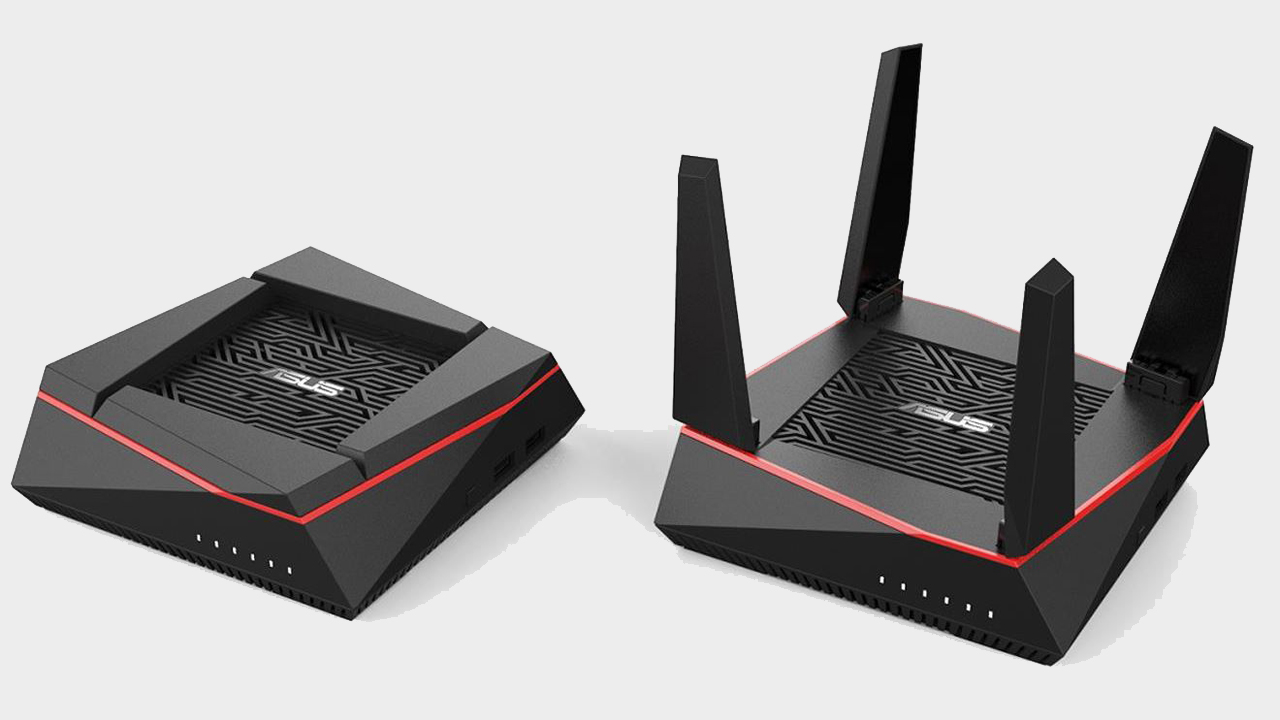
1. ASUS AiMesh AX6100 WiFi
Specifications
Reasons to buy
Reasons to avoid
Let’s face it, there has been no shortage of excellent gaming routers, and plenty of good mesh kits. However, for gamers, if you needed a mesh kit to get full coverage for a larger area, the sacrifice is that the game prioritization is simply not as strong, and this has been repeatedly confirmed in our testing. Well, after we have made requests to more than one manufacturer for a truly gaming mesh kit, the call has been finally answered by Asus, and a tradeoff does not have to be made any longer.
The Asus AiMesh AX6100 WiFi System struck as right away as a pair of the cutest boxes, being smaller in size, and kind of a ‘Mini me’ of the Asus ROG line of routers. We appreciate that each box has four LAN ports, and two USB ports, as well as the four foldable antennas. The two boxes connect via Asus AiMesh, which means this system is a true mesh configuration, and additional units can be added as needed, including other Asus gear such as many older routers, although we consider it a miss that the two boxes did not come preconfigured out of the box. The software features make this a gaming kit, as it includes WTFast, and Asus’ quite excellent QoS that can be set to prioritize gaming.
Specs aside, the testing is what has us most excited, with decent 2.4 GHz performance, such as a mesh far throughput of 111.15 Mbps. Even more notable, the 5 GHz mesh far throughput clocked in at 270.55 Mbps making it the third fastest mesh kit to date. The network congestion testing puts the Asus AiMesh AX6100 WiFi System to the top of our mesh board, with our gaming performance hitting 34.650 FPS, the first mesh kit to break the 30 FPS barrier, while doing it while streaming five 1080p videos with a tidy 7.70% dropped frame rate.
The Asus AiMesh AX6100 WiFi System is our first 802.11ax mesh kit, and the first (and only) one devoted to gaming, making it a truly ‘No compromises’ solution.
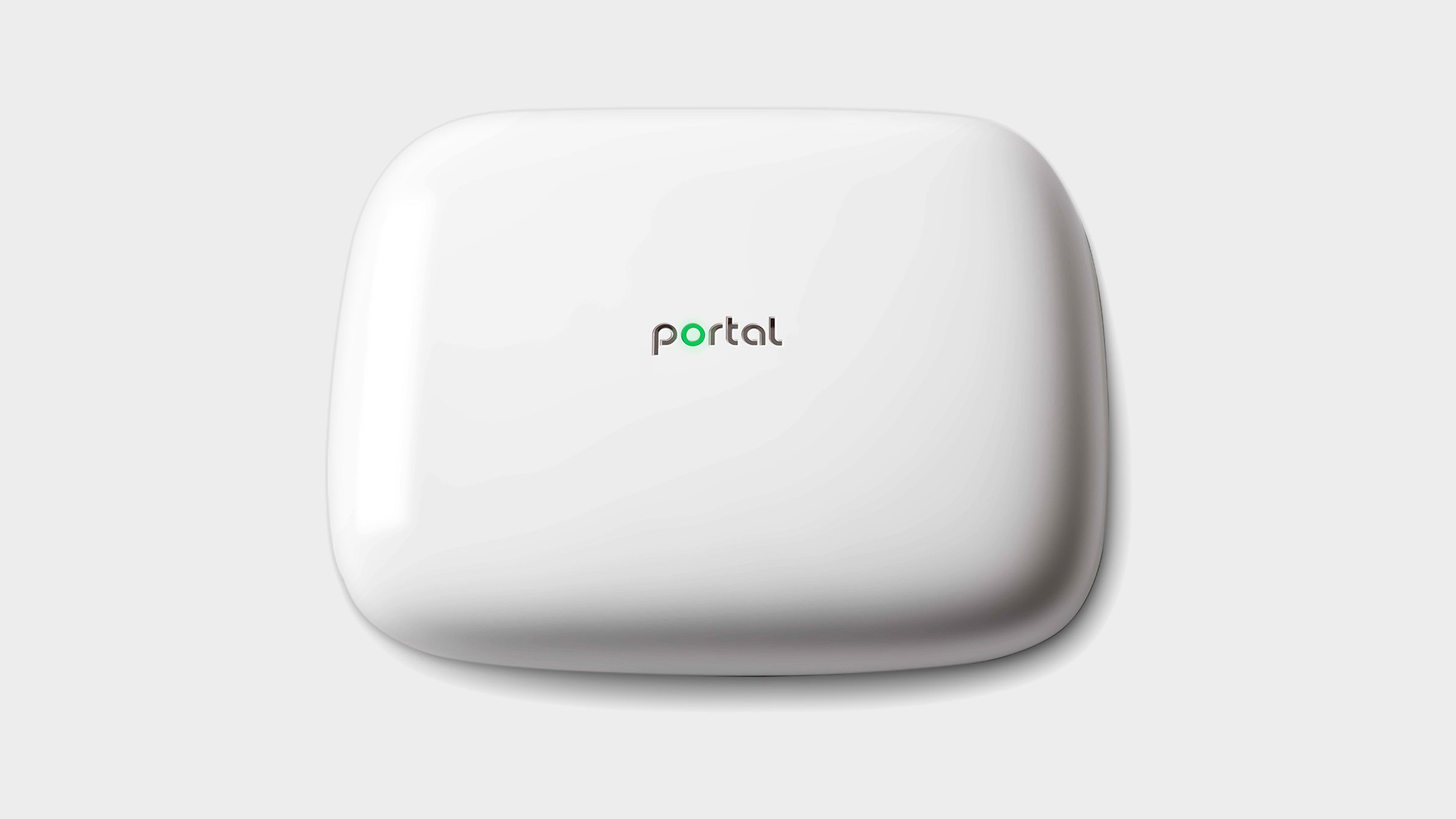
2. Ignition Design Labs Portal Wi-Fi
Specifications
Reasons to buy
Reasons to avoid
If you’ve been waiting for a pure mesh system that offers a no compromises approach to throughput and gaming, then the Portal Wi-Fi kit is the closest yet. The Portal is the result of a Kickstarter from some ex-Qualcomm engineers, and is now produced by Ignition Design Labs and sold through the Razer store.
Portal's specs are quite robust with AC2400 Wave 2 Wi-Fi, MU-MIMO, and a 4x4 radio for the 5 GHz spectrum. The smooth, curved shape houses nine internal antennas, with four Gigabit ports and two USB ports on the rear. It also uses additional 5 GHz frequencies known as U-NII. That spectrum is typically used for radar, but this router can use the frequency if it is clear via Dynamic Frequency Selection (DFS) technology—something that's particularly useful for folks that run Wi-Fi in congested congested areas. Portal refers to this tech as Fastlanes.
The Portal performed well in our 2.4 GHz throughput tests with some wins among our tested mesh routers, but its 5 GHz speeds really blew us away. It dominated across the board, including a score of 551.06 Mbps at the close distance, making it faster than anything else tested. Results in our gaming test was also very strong, with a score of 25.433 FPS—the best FPS seen to date on a mesh router—while streaming our videos with only 5.70 percent of packet loss, whereas many other mesh setups drop frames up in the double digits.
The Portal retails for around $150 for one unit that covers 3000 sq ft, or a two pack for $378. In other words, it's cheaper to buy Portal units à la carte, and add them back together on your own. On its own, a single Portal unit also works as an excellent router for smaller setups.
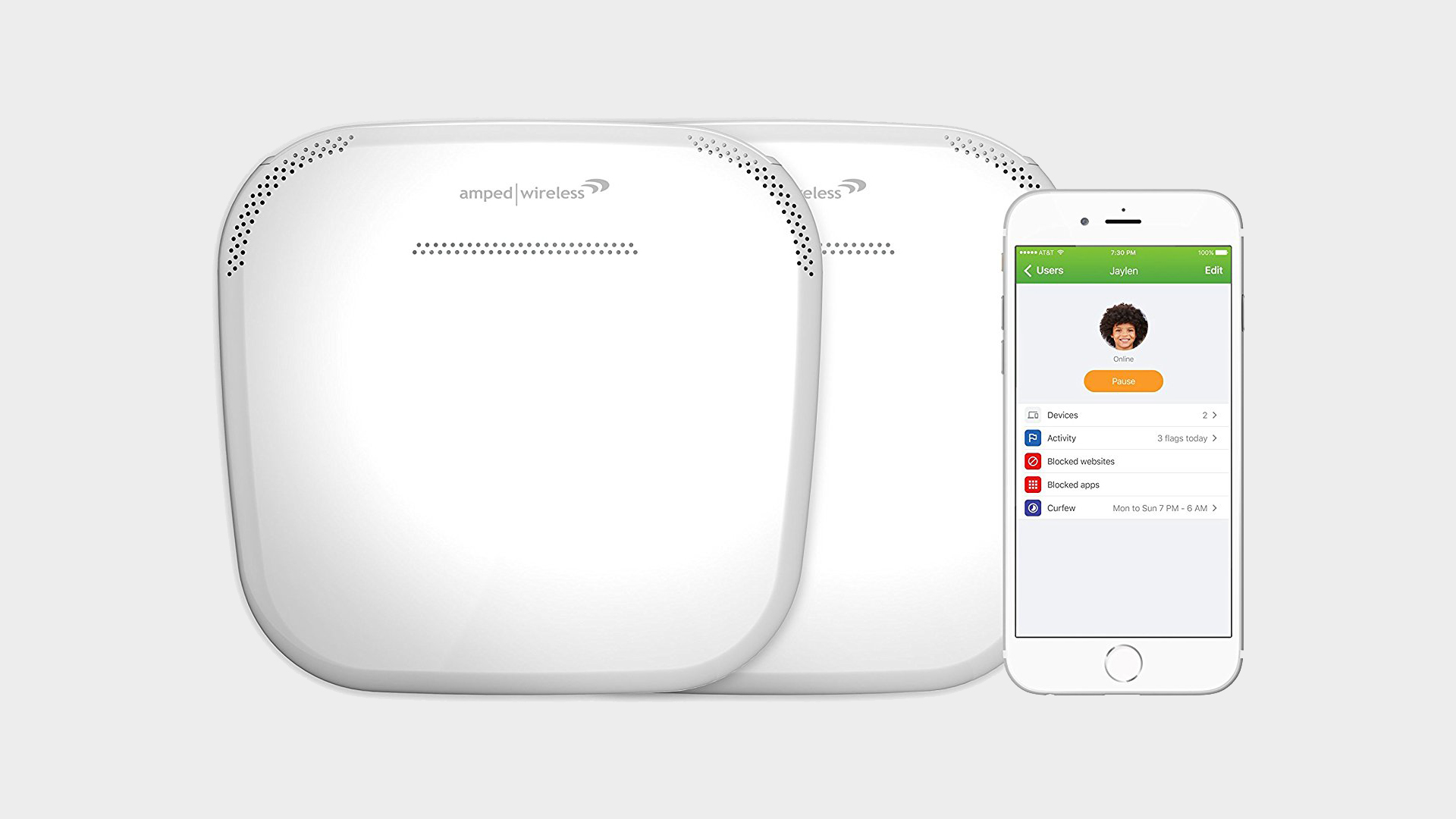
3. Amped Wireless Ally Plus
Specifications
Reasons to buy
Reasons to avoid
The Amped Wireless Ally fits into the router and extender category of the mesh family, with a high total coverage rating of 15,000 square feet. Typical deployment is for the router component to be near the modem, with the extender on a different floor in a central location. Both the router and extender are AC1900, featuring 2.4 GHz speeds of 600 Mbps, and 5 GHz speeds of 1300 Mbps.
While the other more pure mesh kits we tested lack Ethernet ports and USB port access, the Ally doesn't force sacrifices in these areas. The router has three available Gigabit ports (the internet goes into a fourth port labeled “modem”), enough for a desktop, network printer, and NAS, for example. The extender, which connects via a dedicated 5 GHz band, even has a Gigabit port, so it can function as a wireless bridge.
The Ally features QoS settings to prioritize gaming traffic—and it shows. On our gaming network congestion test, the Ally was able to prioritize gaming traffic and keep the FPS at 24.72, with only a single latency spike. With the network saturated, many competitors struggle to maintain a FPS in the single digits. When it came to the throughput testing, the Ally had a similarly impressive performance, easily taking the pole position on three of the six benchmarks, the only mesh router to accomplish this.

4. TP-Link Deco M5
Specifications
Reasons to buy
Reasons to avoid
The Art Deco movement from the 1920’s focused on sleek designs, and simple elegance, and if this school of design were to create a mesh router system, it would be TP-Link’s Deco M5 system. After struggling with other true mesh kits, the M5 is a breath of fresh air when it came to setup. We literally had the app downloaded, the nodes deployed, connected, and firmware upgraded in about 20 minutes- our smoothest setup ever of any mesh kit. Each node is a small disc, with a notched design on the top.
The spec speeds are slower than the competition, with N400 and AC867 Mbps, but the more concerning issue is that these units are not tri-band, which means there is no dedicated backhaul connection between the three nodes in the kit. However, pluses include integrated antivirus software, and more importantly for gaming, QoS that is user selectable to the type of traffic to prioritize, which we promptly set to "Gaming." Other standout features include support for Amazon Alexa, and IFTTT.
In testing, the M5 got bested by the competition on each distance and frequency. However, what really separates the serious gear from the posers is the performance on the network congestion test, and here the M5 is respectable, with an average FPS of 19.8 on our gaming test, while simultaneously streaming five 1080p videos with <1% packet loss. While the M5 is a more than decent system, it did not keep pace with the more robust competition. But the three pack is available for $229, making it one of the more affordable prices for a full mesh kit.
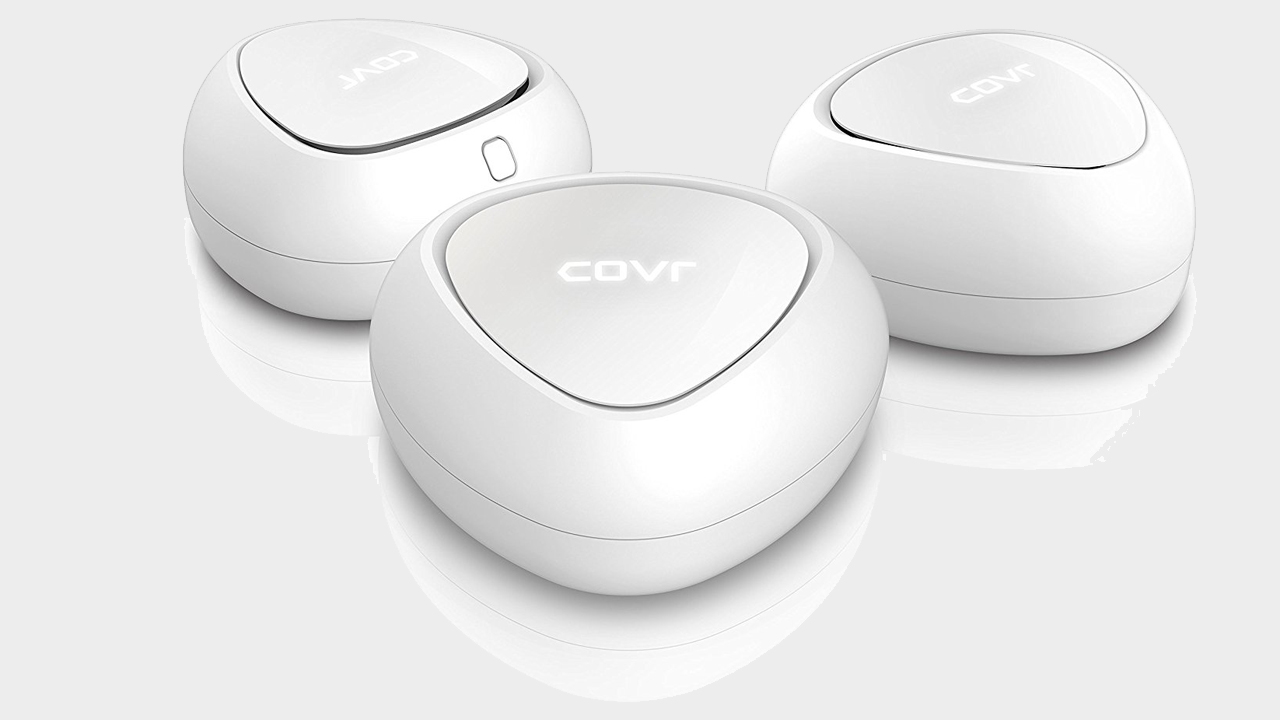
5. D-Link Covr
Specifications
Reasons to buy
Reasons to avoid
D-Link enters the mesh networking space with their freshman effort, the Covr, a play on the term “Wi-Fi coverage,” as in nobody likes it when they lack coverage. The D-Link Covr also takes the hub and spoke approach, with the hub resembling a traditional four antenna router, and the spoke a quarter of the size looking like the “Mini-Me” to the hub. The specs are strong with the hub alone featuring AC2600 speeds, and the overall system stating AC3900 speeds, with support for MU-MIMO with 4 x 4 data streaming. In addition, the hub features four Ethernet ports, and the spoke two more ports, again offering more wired connections than most pure mesh solutions.
Setup can be performed via a D-Link app, but as luck would have it, our early shipping unit did not have an owner’s manual. Plunging right ahead, we simply connected the hub unit to the cable modem, and plugged the extender in, and it all worked right out of the box- really! Advanced settings, including firmware upgrades, and designating priority to devices can be done via a router-based web interface.
In testing, it is immediately clear why robust QoS is necessary for prioritization of gaming and video traffic on our network congestion test. While some other mesh kits struggled to maintain FPS in the single digits on our test game, the D-Link Covr could sustain 24.45 FPS, while simultaneously streaming the five 1080p true HD video streams, with less than 1% dropped frames, an impressive feat. While it debuted at a lofty $299, the current price of $179 gives the D-Link Covr an affordable entry price.
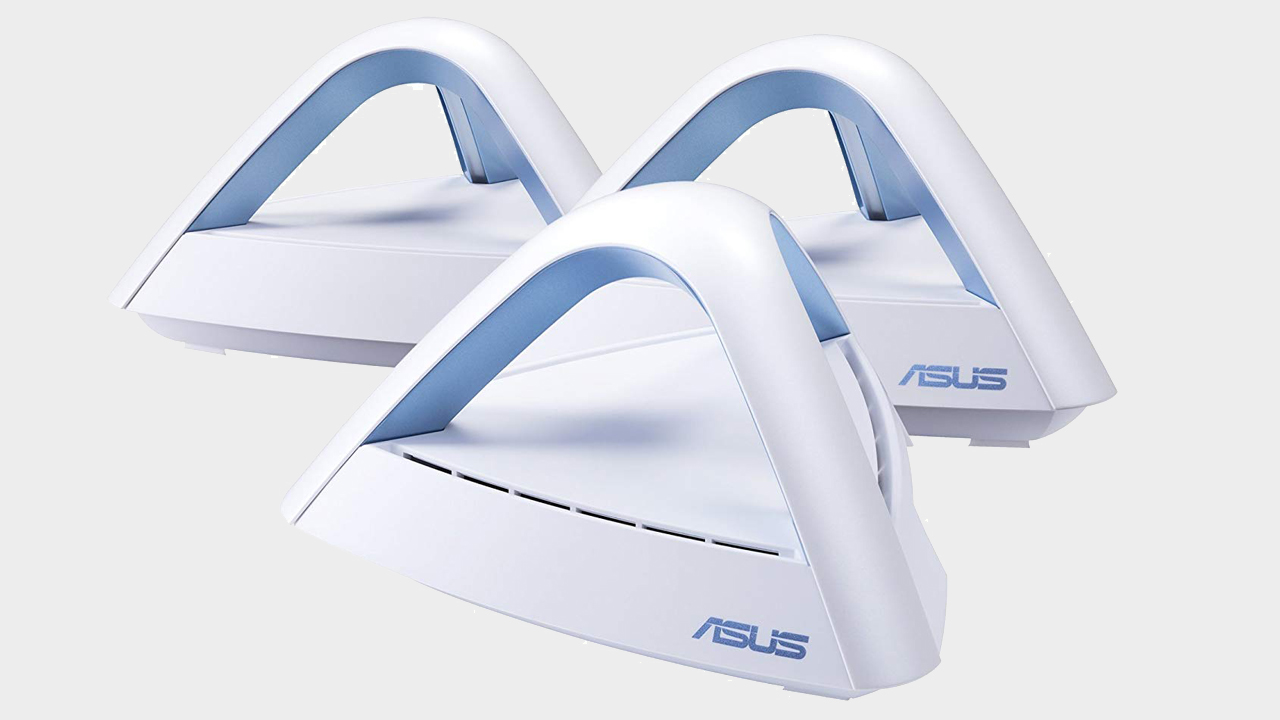
6. Asus Lyra
Specifications
Reasons to buy
Reasons to avoid
Asus takes a pure mesh approach to their mesh solution with three identical nodes, each with two Ethernet ports and seven internal antennas. Each of the nodes has AC1200 speeds and is tri-band, with an additional 800 Mbps bandwidth on the second 5 GHz channel for dedicated wireless backhaul between the nodes. There is no option for wired backhaul between the devices. Each node has two Ethernet ports, but lacks a USB port- a common shortcoming of pure mesh systems. The system sends out a single SSID that combines both the 2.4 GHz and 5 GHz, and assigns traffic to the frequencies to optimize throughput.
Setup and administration is handled via the smartphone app, including parental controls, scheduling, and security by TrendMicro, all without an additional monthly fee (Are you listening Eero Plus?). On the top of each node is a multicolor LED that provides useful feedback for both setup and connectivity. The Asus Lyra setup via the smartphone app is quick, simple, and efficient. The key standout feature, from a gaming perspective is that the network traffic can be prioritized- a feature that too many of these other mesh systems still lack.
Once configured, the Asus Lyra had strong scores on the 5 GHz testing, although it did exhibit some weakness across the 2.4 GHz frequency. What really put it over the top to earn our recommendation is when we streamed the five 1080p videos at it, and fired up our game, it ran at 24.6 FPS- our second highest score for a pure mesh system, making this a pure mesh system that can manage network congestion and provide an gaming experience. Holding this solution back is price, with the three pack available currently for $399.
How we test mesh router kits
PC Gamer's got your back
Mesh networking gear can be divided into two different camps. The first is “True mesh” where a series of devices all interconnect wirelessly, and each of the devices are identical, and interchangeable. The second design is a “Router and extender,” which also gets called a “Hub and spoke” design. To the purists, the “Router and extender” is not a true mesh network, as the devices are not identical, and in the end it is really a router with a prepackaged extender all in one box. However, these days, this type of gear also gets marketed and sold as a “Mesh kit,” so we consider both the pure mesh, and the router and extender gear in this guide for our choices.
A mesh network is the networking panacea for everyone. For example, for those that live in a smaller home or apartment, a well positioned and chosen router will be a perfectly workable solution, with no additional complexity or cost required. However, for more challenging home situations, especially in a multilevel dwelling or a larger residence (greater than approximately 2500 to 3000 sq ft), a mesh router kit becomes a preferred option for those not wishing to take on the challenges of site mapping their current wireless setup, and then choose the best locations for deploying additional extenders and wireless access points.
When testing, all mesh kits are setup in a typical residential setting, with the internet provided via a cable modem. We set up each mesh kit as a two hub system, with the primary unit connected via wire to the cable modem (Optimum 200, DOCSIS 3.0, 12 x 4 channels, speeds 200/35 Mbps). The second node is on a higher floor, with several obstacles in the way, including a floor, a partial concrete wall, and metal ductwork. Throughput testing is performed via the same methods used for our Best Gaming Router Guide, with NetPerf software. We perform each throughput test three times:
By running these multiple throughput tests, this reveals the performance that the secondary node is providing.
In addition, we run a gaming congestion test. Here, the gaming client is connected via 5 GHz Wi-Fi, and running five simultaneous YouTube 1080P videos to provide network congestion. Then latency gets measured via PingPlotter software, and we see how this impacts gaming performance on a sample game of Medal of Honor: Pacific Assault, with the FPS (frames per second) measured via the software tool, FRAPS in a sixty second sample.
Some online stores give us a small cut if you buy something through one of our links. Read our affiliate policy for more info.
Keep up to date with the most important stories and the best deals, as picked by the PC Gamer team.

